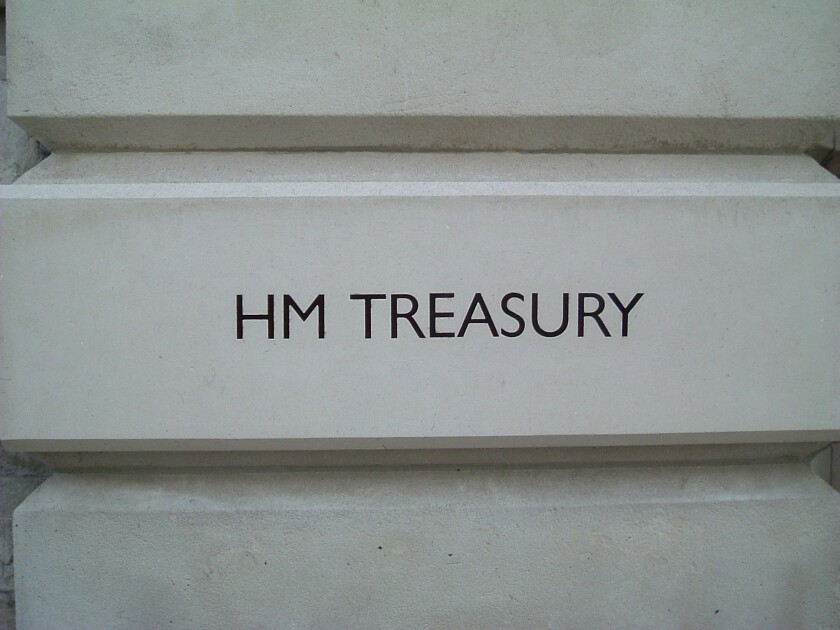UK Chancellor Jeremy Hunt announced in his budget statement yesterday, November 17, that the government would make changes to the energy profits levy to raise an estimated £14 billion ($16.6 billion) next year.
Hunt will raise the windfall tax rate on the profits of oil and gas companies from 25% to 35% and extend the levy’s end date by a further three years to 2028. This move is a part of the government’s plan for a fiscal consolidation following the financial fallout from the September ‘mini-budget’.
Electricity generators will also face a 45% tax on the profits made by renewable and nuclear suppliers due to a surge in gas prices following the Russia-Ukraine war.
The Treasury expects to raise £4 billion from the tax on electricity suppliers and £10 billion from oil and gas companies next year. These measures will take effect from January 2023.
Hunt said that the changes would generate approximately £55 billion by 2028, almost double the initial target set for 2025.
Ireland could net extra €15bn tax annually, says report
The Irish government could raise an extra €15 billion, or 5.3% of gross national income, per year if it implements the recommendations of the Commission on Taxation and Welfare, according to a research paper published on Wednesday, November 16.
The Potential Impact of Commission on Taxation and Welfare report, by the Irish Fiscal Advisory Council (IFAC), a non-departmental statutory body, suggested 116 possible amendments to expand the tax base.
These included increasing VAT and local property tax, and restricting capital gains tax relief from private property disposals.
“It would take us from being a relatively low-tax economy in the European context, more like the UK, to something more like Germany,” said Sebastian Barnes, chairperson of the IFAC, in an interview with RTÉ's Morning Ireland about the report’s recommendations.
Meanwhile, the Commission on Taxation and Welfare report expressed support for Ireland’s 12.5% corporate tax rate. However, it was critical of what it called an over-reliance on corporate tax receipts and a narrow tax base to fund public spending.
South Africa’s sugar industry calls for tax freeze
The South African government is facing calls from sugarcane farmers to freeze a planned 4.5% increase in the health promotion levy due in 2023.
KwaZulu-Natal lawmakers met with sugarcane farmers and industry representatives to discuss the tax measure on Wednesday, November 16. Sugarcane farmers are calling for a three-year freeze in rate increases.
The South African Sugar Association claims that the levy has cost the industry more than R8 billion ($458 million). Sugarcane farmers fear that the tax could cost the industry 16,000 jobs. This is if it were kept at the same rate, but the rate is set to increase every year.
OECD releases public comments on pillar one amount A
The OECD released the public comments received on pillar one amount A on Wednesday, November 16.
The comments concern the progress report on pillar one published in October.
Public authorities including the Irish Tax Institute (ITT) criticised amount A for failing to fit within existing tax systems.
One aspect that has come under scrutiny is the common documentation package. The ITT argued that the requirement could contain sensitive commercial information shared with affected parties.
“In our view, it would be important that there are appropriate safeguards for taxpayers including, for example, by limiting the sharing of data with affected parties,” said the ITT.
Others welcomed the opportunity to comment on the progress report. However, there were still many concerns from taxpayers about pillar one.
The OECD’s Tax Certainty Day, which will be held on Tuesday, November 22, will also allow policymakers, tax administrations, and businesses, to discuss the tax certainty agenda going into 2023.
Tax reform will not change Colombia’s credit rating, says Fitch
The Colombian government may be embarking on an ambitious tax reform, but the changes will not affect the country’s fiscal forecasts according to credit agency Fitch Ratings on Wednesday, November 16.
President Gustavo Petro plans to use the tax revenue raised from higher rates levied on wealth and corporate profits to fund social programmes. The reform package is estimated to increase tax revenue by as much as 1.4% of GDP by 2024.
Finance Minister José Antonio Ocampo has pledged to respect Colombia’s fiscal rule to reduce net government debt to 55% of GDP. However, Fitch Ratings expects the country’s debt-to-GDP ratio to stay at around 60% for 2023-24.
Fitch said it expects to keep Colombia’s rating at BB+.
G20 Leaders’ Declaration backs two-pillar solution
The G20 Leaders’ Declaration, published after the summit held from Tuesday to Wednesday, November 15 to 16, demonstrates continued support for the OECD’s two-pillar solution.
“We support the progress made on implementing internationally agreed tax transparency standards, including regional efforts, and welcome the signing of the Asia Initiative Bali Declaration in July 2022,” said the G20 statement.
G20 governments are now calling for the Inclusive Framework on BEPS to finalise pillar one and settle the questions still hanging over the proposal by signing a multilateral convention in the first half of 2023.
Negotiations on the subject-to-tax rule under pillar one are expected to be completed for the implementation of a multilateral instrument.
Next week in ITR
ITR will be getting reactions from tax leaders on how some authorities are creating uncertainty for taxpayers by applying different transfer pricing principles to different transactions.
Readers can expect these stories and plenty more next week. Don’t miss out on the key developments. Sign up for a free trial to ITR.













